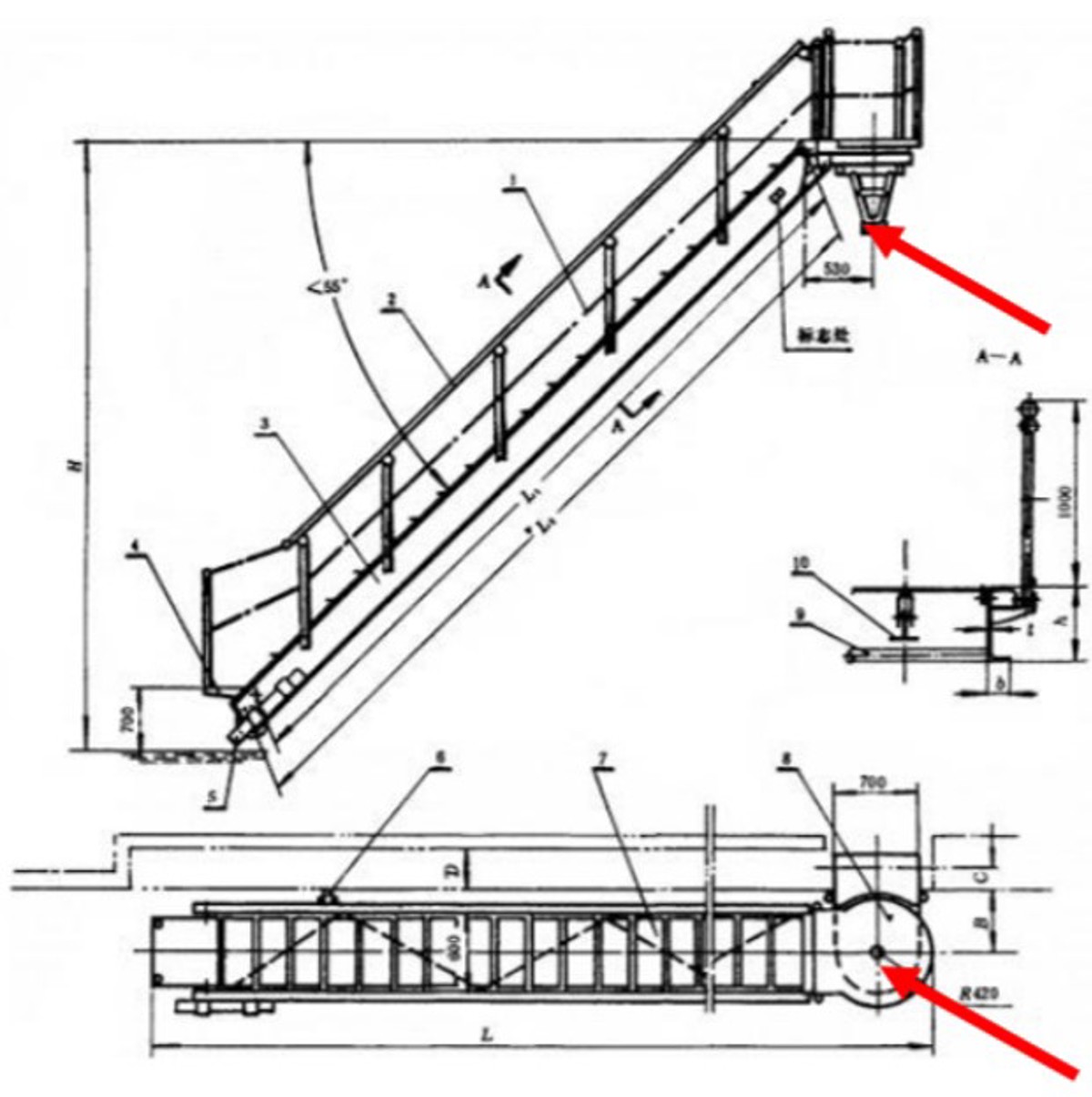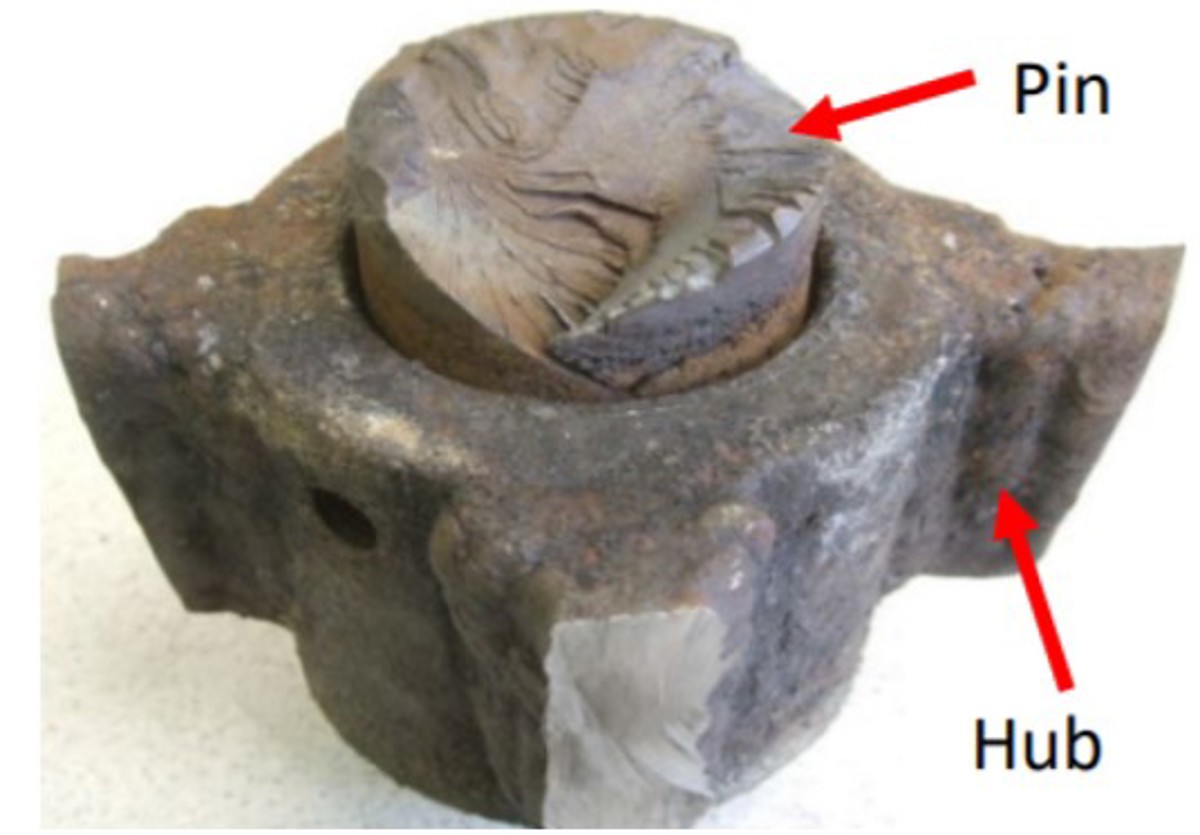USCG: Corrosion causing structural failure on accommodation ladders
- Safety Flash
- Published on 28 October 2021
- Generated on 4 July 2025
- IMCA SF 29/21
- 2 minute read
Jump to:
The United States Coast Guard (USCG) has published Safety Alert 05-21 relating to corroded turntable pins on accommodation ladders.
What happened?
The USCG reported that “a recent marine casualty resulting in an injury of a crewmember onboard a foreign freight vessel brought to light a potentially dangerous situation involving the turntable pin on accommodation ladders. Currently, there are no established timelines or requirements to replace turntable pins. Without proper and periodic examination and replacement, corrosion can ultimately lead to structural failure.”
The USCG noted multiple foreign (not American) flagged vessels had accommodation ladder turntable pins in service for more than 20 years without replacement. Guidelines on the maintenance of accommodation ladders is contained within 74 SOLAS (14) II-1/3-9, MSC.1/Circ. 1331, and 74 SOLAS (14) III/20.7.2; however, none of the aforementioned references include maintenance guidelines for the turntable pins.

Pin location on the Accommodation Ladder Turntable

Accommodation ladder connection pin with severe corrosion over the pin’s fracture surface & sidewall and on the surface of the hub
What went wrong?
The USCG notes that while the turntable pin may seem like a minor component, its failure can cause significant harm to all persons utilising the accommodation ladder.
In this instance, the vessel’s crew was in the process of stowing the accommodation ladder when the turntable pin failed.
As a result, a crew member who was on the accommodation ladder at the time fell approximately 30 feet and sustained serious injuries.
Actions
The Coast Guard strongly recommends that vessel owners and operators:
- Maintain the turntable pins.
- Periodically inspect the condition of the turntable pins and replace then when necessary.
- Revise accommodation ladder maintenance plans to include turntable pins.
Related Safety Flashes
-
IMCA SF 03/20
30 January 2020
-
-
IMCA SF 02/03
1 February 2003
IMCA Safety Flashes summarise key safety matters and incidents, allowing lessons to be more easily learnt for the benefit of the entire offshore industry.
The effectiveness of the IMCA Safety Flash system depends on the industry sharing information and so avoiding repeat incidents. Incidents are classified according to IOGP's Life Saving Rules.
All information is anonymised or sanitised, as appropriate, and warnings for graphic content included where possible.
IMCA makes every effort to ensure both the accuracy and reliability of the information shared, but is not be liable for any guidance and/or recommendation and/or statement herein contained.
The information contained in this document does not fulfil or replace any individual's or Member's legal, regulatory or other duties or obligations in respect of their operations. Individuals and Members remain solely responsible for the safe, lawful and proper conduct of their operations.
Share your safety incidents with IMCA online. Sign-up to receive Safety Flashes straight to your email.